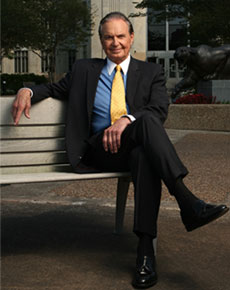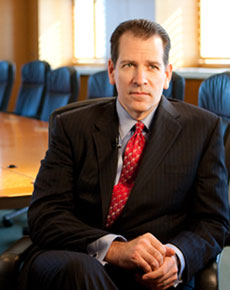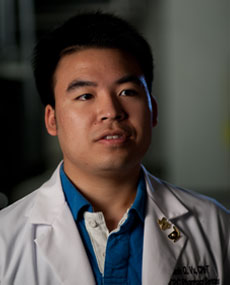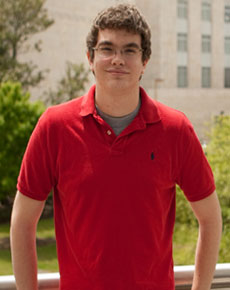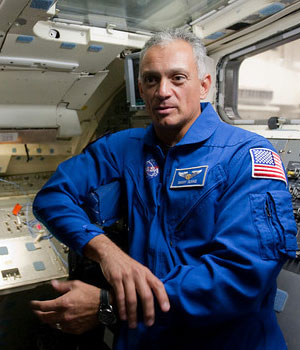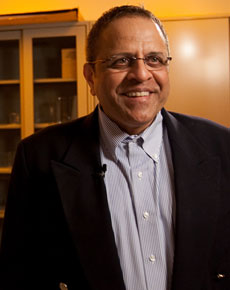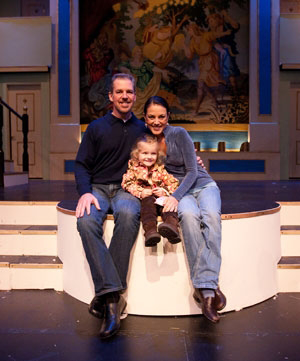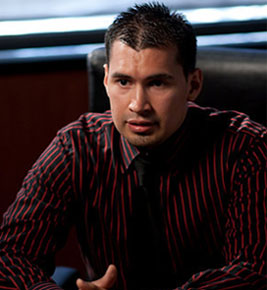
Raised in El Salvador by a single mother, University of Houston student Jeovany Ortega Zelaya learned early lessons in determination.
Thrown into Houston public schools as a child who spoke only Spanish, Zelaya quickly found the determination to master the English language. When an injury left his mother unable to work, Zelaya began working full-time at an early age to help support his family.
“It just taught me that I had to work a little bit harder than everybody else,” Zelaya said of his childhood.
Now, a junior in the business marketing program at the C.T. Bauer College of Business, Zelaya is using that same determination to finish his undergraduate education in four years and become the first in his family to earn a college degree.
A diploma and a chance at a rewarding career will make all of those early struggles worth the effort, for both himself and his mother, he said.
“My mom just kept telling me, ‘It’s on you,'” he said. “That put the drive inside me.”
When it came time to choose a school, Zelaya selected the University of Houston based on its proximity to his mother, as well as the reputation of the business school. A four-year scholarship from the Houston Livestock Show and Rodeo made attending college possible.
“It was like a dream come true,” Zelaya said of the scholarship. “Of course my family needed it. Having somebody be so generous and giving you that type of scholarship throughout your career … I really appreciate it.”
So far, college has been a rewarding and eye-opening experience, he said, adding that he appreciates that professors are willing to give students individual attention, even in some of the large lecture classes.
“What I liked the most, even though there were so many kids in each classroom, is they [professors] really made it seem like they were just talking to you,” Zelaya said. “They are very helpful.”
One particular favorite, the late Leslie Marenchin, taught philosophy.
“He opened my eyes a lot about how to look at certain things, or just religion in general in a different manner,” Zelaya said. “I love the type of professor who actually opens up your mind to different concepts.”
At the business school, he said he is receiving wonderful training that will lead him to success in his chosen field – marketing.
“I felt like I could communicate really well with other people,” Zelaya said, explaining his decision to go into marketing. “I felt like being positive and being a good communicator really would go a long way with the type of sales marketing approach I wanted to go into.”
Though he is a commuter – he travels 45 minutes one-way to school each day – and must work most weekends, Zelaya still loves to support the Cougars.
With his work schedule, he misses most football games, but he follows them closely on the radio. The exception this year was the Texas Tech game, in which UH defeated Tech 29-28.
“When they are as big as the Texas Tech game, you just can’t pass it up,” he said. “I loved every second of it – rushing on the field. When I have the chance, I love to support UH.”
Though the Rodeo Scholarship helps him pay for school, Zelaya still works 40 to 50 hours a week to help support himself and his mother.
Now, he is working as a data collector at Gallup – a consulting firm known as one of the leading public polling organizations around the world. Zelaya hopes to stay with the company and continue to rise through its ranks.
“The way they influence their employees, and the culture they have, it really influenced me to stay in the company,” he said.
Ultimately, Zelaya said he plans to further his education and earn his MBA.
The accomplishment will make his mother very proud, as well as himself.
“I know that being patient, persevering and being positive throughout my whole life has led me to where I am today,” Zelaya said.
